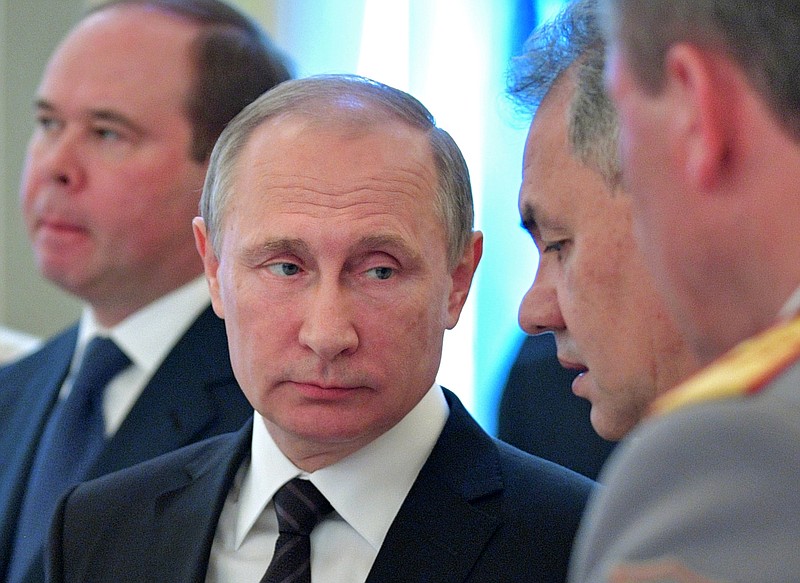WASHINGTON (AP) - Kremlin leaders are convinced America is intent on regime change in Russia, a fear that is feeding rising tension and military competition between the former Cold War foes, the Pentagon's intelligence arm has assessed.
The unclassified report by the Defense Intelligence Agency, which will be publicly released later Wednesday, portrays Russia as increasingly wary of the United States. It cites Moscow's "deep and abiding distrust of U.S. efforts to promote democracy around the world and what it perceives as a U.S. campaign to impose a single set of global values."
"The Kremlin is convinced the United States is laying the groundwork for regime change in Russia, a conviction further reinforced by the events in Ukraine," the report says, referencing the claims by President Vladimir Putin's government the U.S. engineered the popular uprising that ousted Ukraine's Russia-friendly president, Viktor Yanukovich, in 2014. Russia responded by annexing Ukraine's Crimea region and supporting pro-Russian separatists in eastern Ukraine.
"Moscow worries that U.S. attempts to dictate a set of acceptable international norms threatens the foundations of Kremlin power by giving license for foreign meddling in Russia's internal affairs," the report says. Titled "Russia Military Power," it is the agency's first such unclassified assessment in more than two decades.
The Associated Press obtained a copy of the report in advance of its public release. It harkens to Cold War days when the intelligence agency published a series of "Soviet Military Power" studies that defined the contours of the superpower rivalry. Those reports ended with the 1991 demise of the Soviet Union. Now they return, DIA's director, Marine Lt. Gen. Vincent R. Stewart, says, with an eye on the future of U.S.-Russian relations.
"Within the next decade, an even more confident and capable Russia could emerge," Stewart wrote in a preface to the report. No new, global ideological struggle akin to the Cold War is forecast, but the report cautions that Moscow "intends to use its military to promote stability on its own terms."
During President Barack Obama's eight years in office, the U.S.-Russian relationship deteriorated from an initial "reset" to American allegations Moscow meddled in the 2016 presidential election to aid Donald Trump's victory. In between, were intense disagreements over Ukraine and Syria, where Russia has provided military help to President Bashar Assad's government and the U.S. has backed anti-Assad rebels.
While Trump's campaign rhetoric was widely seen as sympathetic to Russia, ties have not improved in his first six months of his presidency. In April, Trump said U.S.-Russian relations "may be at an all-time low." Trump is expected to meet Putin for the first time at an international summit in Germany next week.
Today's report, prepared long before Trump's election, reflects the Pentagon's view of the global security picture shifting after nearly two decades of heavy American focus on countering terrorism and fighting relatively small-scale wars across the Middle East. Russia, in particular, is now at the center of the national security debate in Congress, fed by political divisions over how to deal with Putin and whether his military buildup, perceived threats against NATO and alleged election interference call for a new U.S. approach.
Rep. Adam Smith, the House Armed Services Committee's top Democrat, issued Wednesday a "national security manifesto" on Russia. He and a group of lawmakers writing in Time magazine cited the threat of "Putinism," which they termed "a philosophy of dictatorship" that seeks to extinguish democratic ideals such as government transparency by exploiting "discontented facets of democratic polities worldwide."

